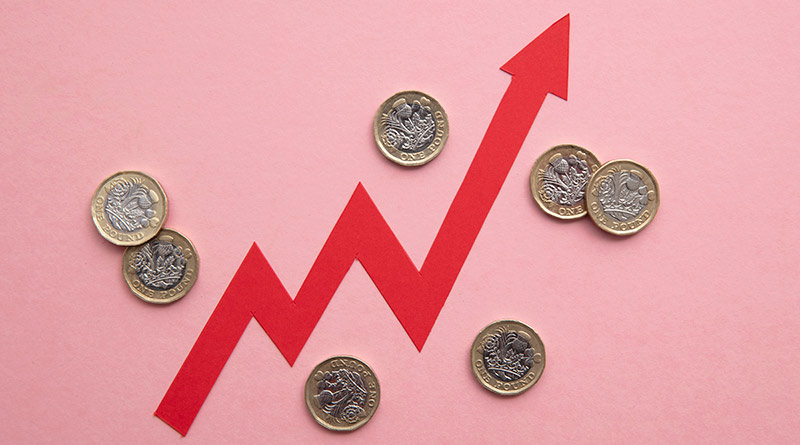Air Fares & Food Prices Increase Inflation to 19-month High in July

Inflation jumped to its highest level in 19 months, largely attributed to higher food prices and transport costs.
Figures from the Office for National Statistics (ONS) revealed that the annual rate as measured by the consumer price index (CPI) increased to 3.8% in July, up from 3.6% in June, and is forecast to reach 4% by the end of the year.
Transport costs, mainly as a result of higher air fares, were the largest upward driver of prices. Petrol prices nudged higher compared with last year, when prices at the pumps were falling.
Food and non-alcoholic drinks were up 4.9% year on year in July, an increase from 4.5% in the 12 months to June.
Kate Nicholls, Chair of UKHospitality, said: “It’s clear the UK economy is stuck in a low growth and high inflation trap, and the only certainty is that increasing taxes and costs would make the situation worse.
“Our latest member survey data shows that the £3.4 billion in additional annual cost that hit the sector in April has forced eight in 10 hospitality businesses to put up prices – which is no doubt a factor unfortunately fuelling inflation.
“Pulling the tax lever on hospitality once again would be the worst possible thing to do and instead the Government should lower business rates, fix NICs and cut VAT at the Budget to back hospitality and stop the sector from being taxed out.”
Michael Kill, CEO, Night Time Industries Association said: “Today’s inflation figures, with prices rising to 3.8 per cent in July, underscore the relentless pressure on the UK’s night-time economy. Hospitality and night time economy businesses are facing sharply higher costs for food, energy, and transport at a time when margins are already wafer-thin.”
After years of cost-cutting, the sector has reached its limit. There is very little left to trim without impacting quality, service, and staff levels. Many operators have already squeezed margins, streamlined staffing, and absorbed costs wherever possible. Some input costs are rising sharply month-on-month, leaving businesses with little room to manoeuvre without impacting quality or service.”
This persistent inflation threatens to impact the night-time economy further, which is still attempting to rebound from the pandemic and subsequent cost pressures. Policymakers need to recognise that sustained price rises do not only hit households but also the very businesses that underpin vibrant city centres and cultural life. Supporting operators to remain viable while maintaining quality and employment is essential if the UK’s night-time economy is to continue thriving.”
Nicholas Hyett, Investment Manager, Wealth Club: “Rising air fares and higher restaurant and hotels costs are making 2025 an eye wateringly expensive summer. Air fares in particular rose 30.2% month-on-month, the biggest single month rise since records began. True some of that is down to timing, but airlines have been talking about a capacity crunch for a while now, and higher costs are the inevitable outcome.”
More concerning from a social and economic perspective is the continued rise in food prices, up 4.5% year-on-year and the fourth consecutive increase in the annual rate. Coming on top of the run-away food price inflation seen in 2022 and 2023 that will be very painful for consumers. Rising food and beverage prices together with rising housing costs will be decimating disposable incomes.
All this leaves the policymakers with a bit of a conundrum. The most recent interest rate cut was made despite the expectation that inflation would hit 4% in September – which now looks increasingly likely. But with the labour market slowing, the risk of stagflation is very real. If the UK is heading towards the economic “worst of all worlds”, it’s not clear what the central bank or the government should do about it.”
